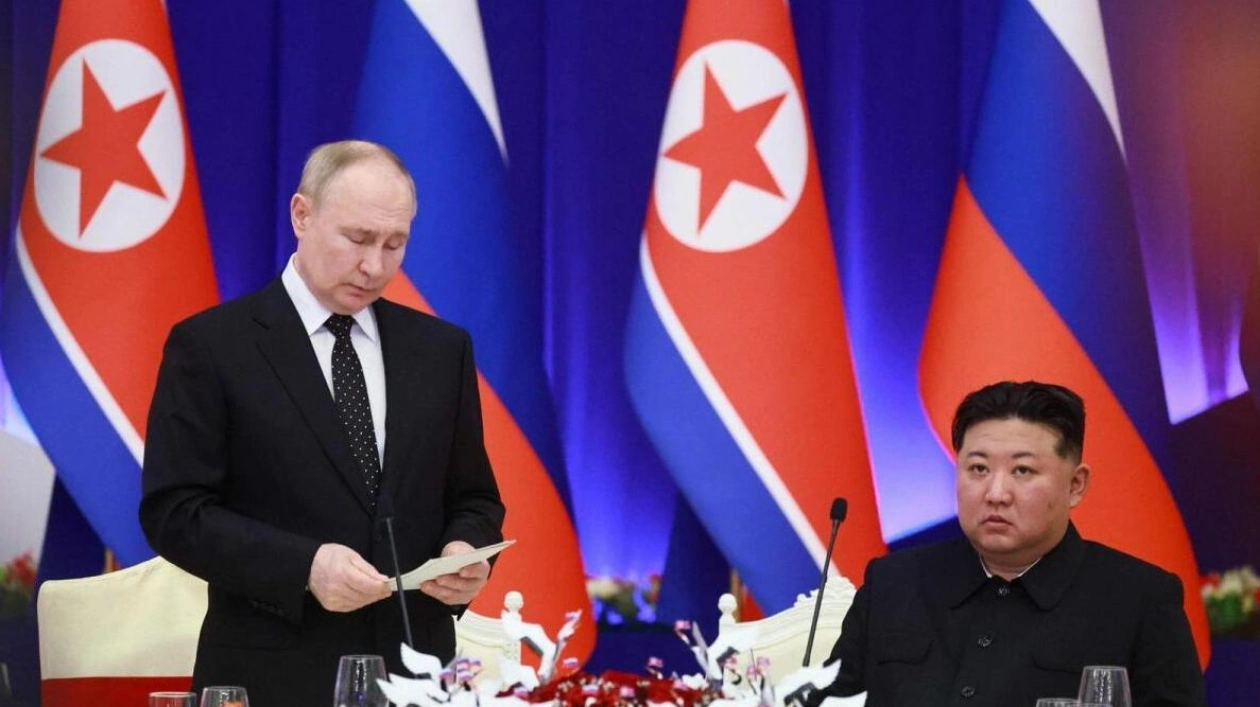North Korea has changed its state TV broadcast transmission to a Russian satellite from a Chinese one, according to South Korea's unification ministry on Monday. This switch complicates monitoring efforts for South Korean government agencies and media. North Korea's Korean Central Television began using the Russian Express 103 satellite from June 29, instead of the ChinaSat 12 satellite, as confirmed by a South Korean satellite dish service provider to Reuters. The provider requested anonymity due to the issue's sensitivity.
This satellite change occurred after Russian President Vladimir Putin's visit to North Korea in June, where he met with North Korean leader Kim Jong Un and signed a treaty to enhance cooperation across various sectors, including a mutual defense pledge. Although North Korean TV can still be viewed online, the quality may be delayed or poor. South Korean entities monitor North Korean state media as one of the few sources of information from the isolated state, despite its highly politicized and staged content.
A unification ministry official stated, "North Korea has ceased using the existing Chinese satellite and started transmitting broadcasts via a Russian satellite, and reception of these satellite broadcasts is being restricted in some areas on our side." The ministry is working to address this technical issue. Authorized entities in South Korea require satellite service access to watch North Korean broadcasts, while the general public is prohibited from accessing North Korean media. Reuters has been unable to receive North Korean TV signals since Monday morning.
While Russia and North Korea have demonstrated significant moves to strengthen their ties and resist the US-led West, China has refrained from any trilateral arrangements that could complicate its relationships with other countries.






